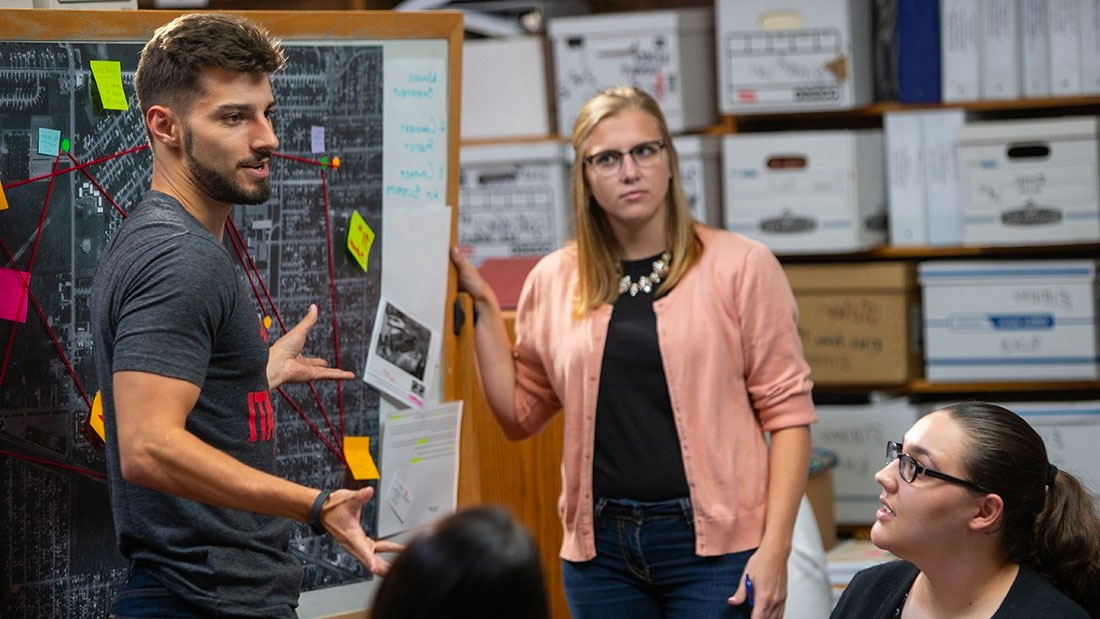While his passion for advocating for the underrepresented was fortified during his military service, Travis’ dream of becoming a litigator advocating for human rights was ignited as a small boy. Sitting in the pews at Sunday services, he would often hear stories about civil rights heroes litigating landmark cases such as Brown v. Board of Education. He imagined himself in their shoes one day.
“Since I was young, I always had this picture of myself being a litigator, speaking to a judge – being one of those civil rights figures from the past, advocating for communities,” he said. “Oddly, I think some of the experiences I've had with discrimination informed my desire to be a lawyer even more.”
Returning to civilian life, Travis pursued a major in Sociology with an emphasis on African American and Women’s Studies and a minor in Spanish at The University of South Carolina Aiken (USCA). For the first time in his life, he was being taught a more complete history of his identity as Black man and as queer, providing him with the tools to effectively communicate his experiences. Recognizing the importance of standardized education on race and gender topics, Travis emphasized that it is crucial for the country to address bias in institutions such as the military, education, and the criminal justice system.
“From a young age I identified as queer, but I didn't know how to communicate that to the people around me…I didn't get that education until I got to undergrad,” he said. “So, if a queer Black man who wants to advocate for racial queer justice and civil rights cannot lead those conversations until I graduate from college, how am I supposed to expect majority white people to be able to have those same conversations in their own spaces?”
After completing his undergrad, Travis accepted a role as Diversity Initiatives Coordinator at USCA, where he trained others in cultural bias and inclusion. It was there that he set his sights on law school, seeking a program that would allow him to further his education in women's and gender studies while emphasizing social justice. That’s when he found Cincinnati Law, a law school offering a unique joint JD/MA program in Women's Studies, along with renowned initiatives such as the Ohio Innocence Project (OIP) and the Black Lawyers Association (BLSA).
“UC was one of the only schools I could find that had a joint program in Women’s Studies and JD, which was very unique,” he said. “They also had the OIP (Ohio Innocence Project), a well-established Black Lawyers Association (BLSA), and [at the time] was led by a prominent Black woman, Dean Verna Williams.”
Never imagining leaving the South where he grew up, Travis was compelled by Cincinnati Law’s joint JD/MA degree program, and made the move to the Midwest.






